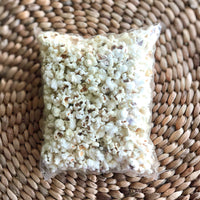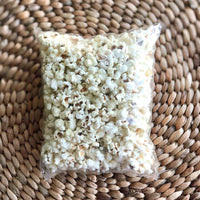
I highly believe that there is no “one size fits all” diet; not everything works for everyone. Also, I truly believe that we can eat the healthiest foods, but if we don’t end up digesting and absorbing them, they won’t end up in our cells in order to provide us with their nutritional benefits.
Both the digestion of the food we eat and the absorption of its nutrients are the functions that allow the entire body to be nourished.
To start, food is first broken down in macronutrients and micronutrients, processed into amino acids and then the absorption happens. Gut microbes play an important role in absorption of fats and vitamins, because they thrive on the indigestible parts of our foods: fiber!
In short, we have to be able to digest, breakdown and then absorb the nutrients from the foods we eat. If we don’t do that, if we don’t absorb enough iron, then anemia can be an outcome; if we don’t absorb enough vitamin B6, this can lead to neuropathy, not enough Omega 3 fatty acids can lead to depression, not enough magnesium can lead chronic headaches and so on.
What affects optimal digestion and absorption?
-
Poor eating hygiene: its not how clean your food is, but HOW you eat your food: Do you eat on the go? Do you chew well?
-
Drinking too much water with your meals: this dilutes the stomach acid and can impair digestion. Drink water 20 minutes before your meals or 30 minutes after your meals. You can drink warm ginger tea to enhance digestion.
-
Drinking coffee/tea with meals: caffeine negatively affects iron absorption! It is not recommended to drink coffee before your breakfast. If you take vitamin supplements, have your coffee 30 minutes after your meals and your vitamins 2 hours before or after your coffee as caffeine prevents iron from being absorbed in the body.
-
Over the counter medications: some medications lower stomach acid and weaken digestion. Get to the root cause of your issues and try to avoid medication as much as possible. Don’t turn to pills to numb down your pain, instead, understand what is causing the pain and try to fix it. For example, if you are suffering from a migraine, you could be dehydrated or sleep deprived.
-
Painkillers: if you take them consistently you can damage the GI tract and decrease the ability to absorb nutrients. Damage to your intestines can affect the quality of nutrient absorption; if you must take painkillers, make sure you don’t take them on an empty stomach.
-
Stress: your digestive system turns off every time you are in stress mode! Eating slowly and mindfully helps you become aware of what you are eating and how you are eating. Eating slowly also helps control portions and makes you feel full faster.
-
Food combinations: some nutrients compete with each other and others enhance others' performance. For example, calcium competes with iron, but vitamin C helps the body absorb it! Little tip: drizzle your olive oil and lemon juice on that kale and devour it :)
Be mindful of what you eat, and everything will fall into place!
Author: Functional Medicine Health Coach, Dina.






































